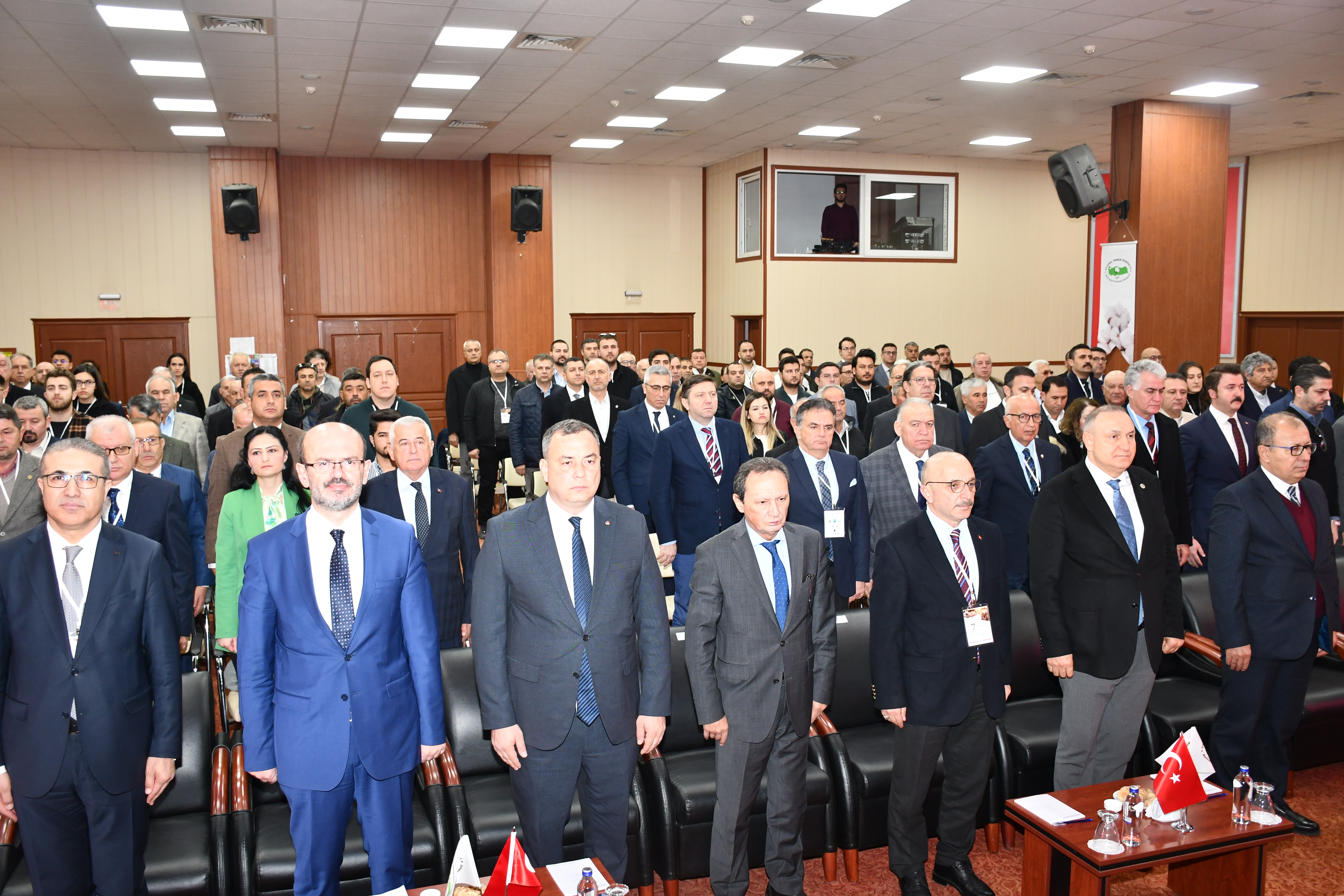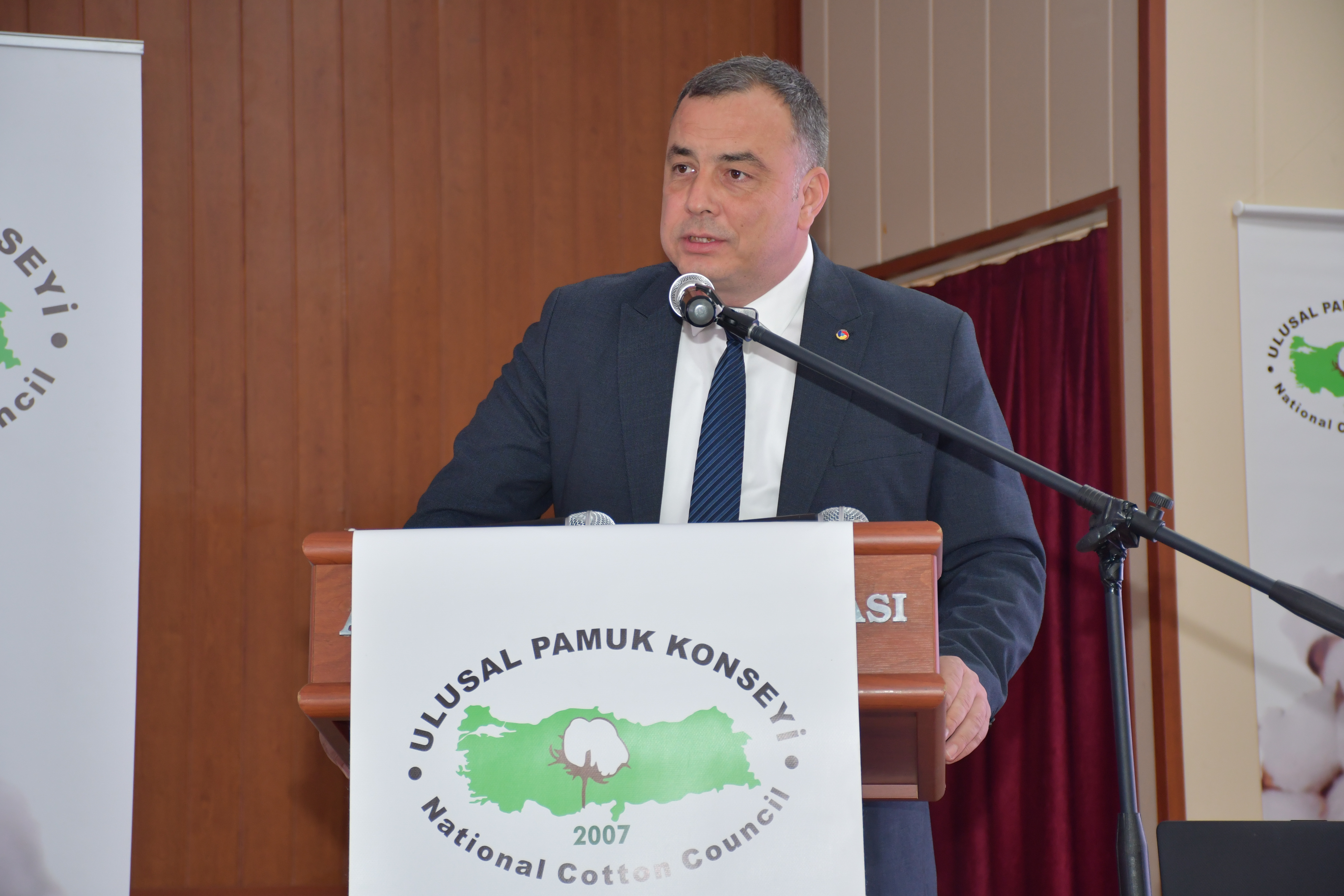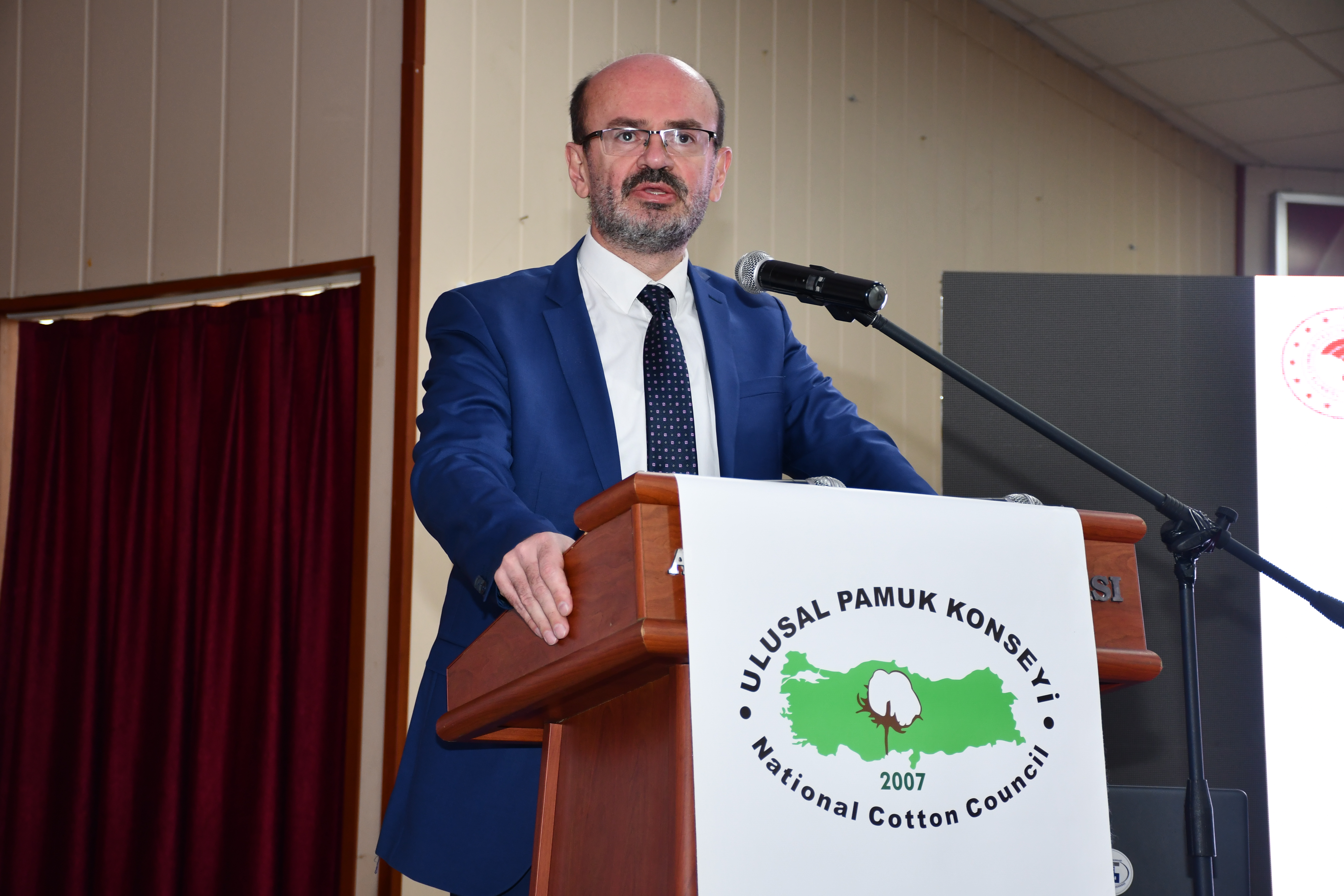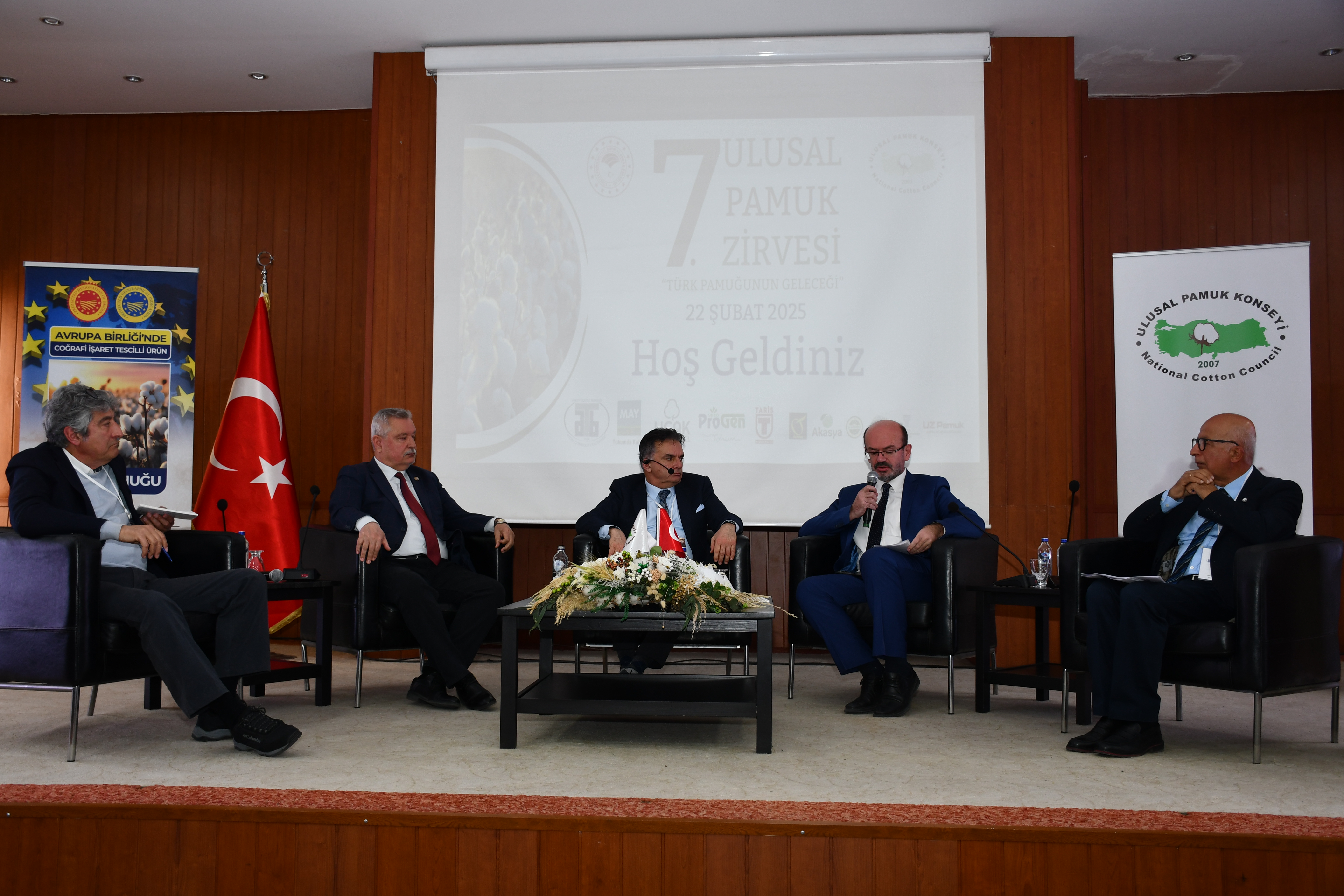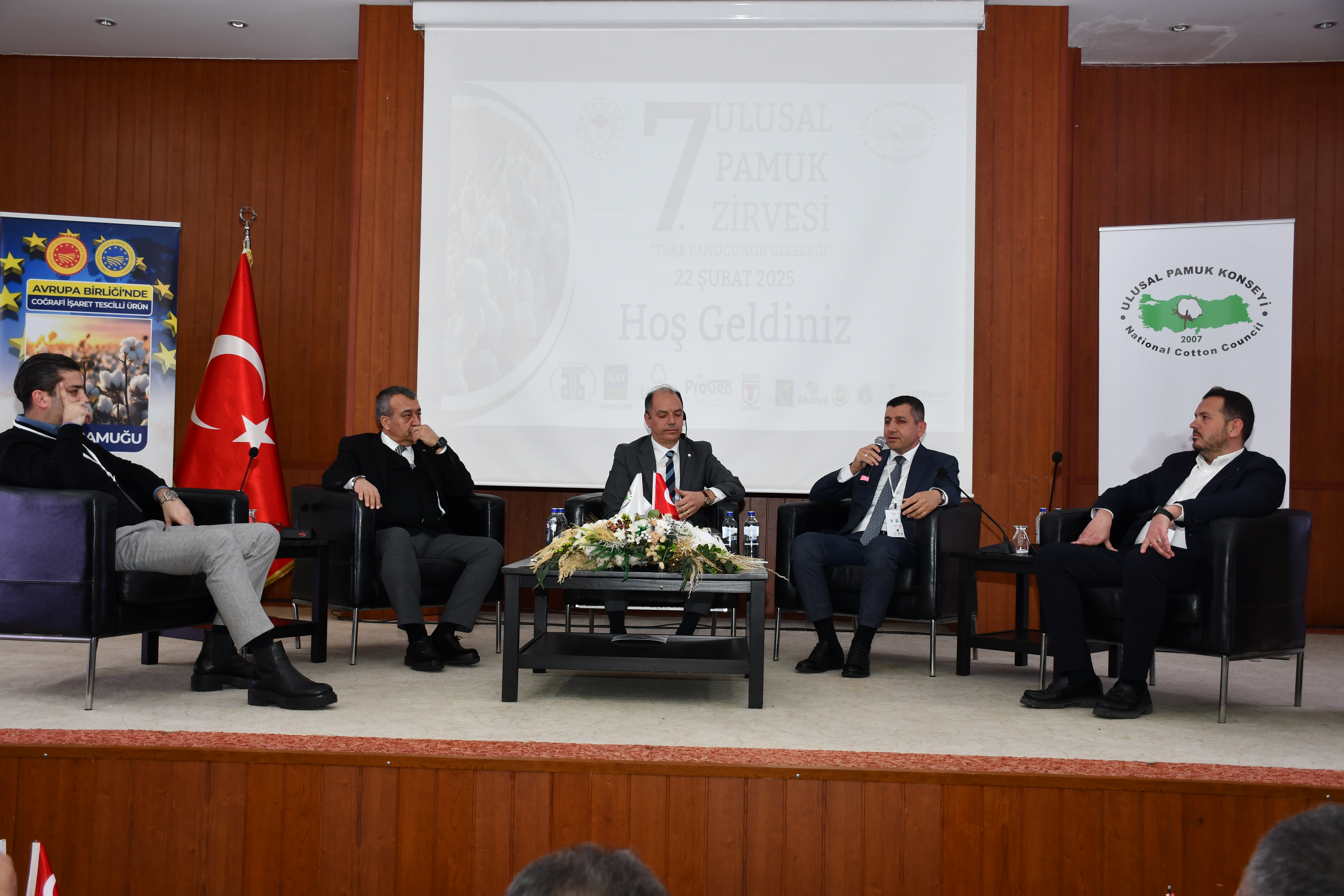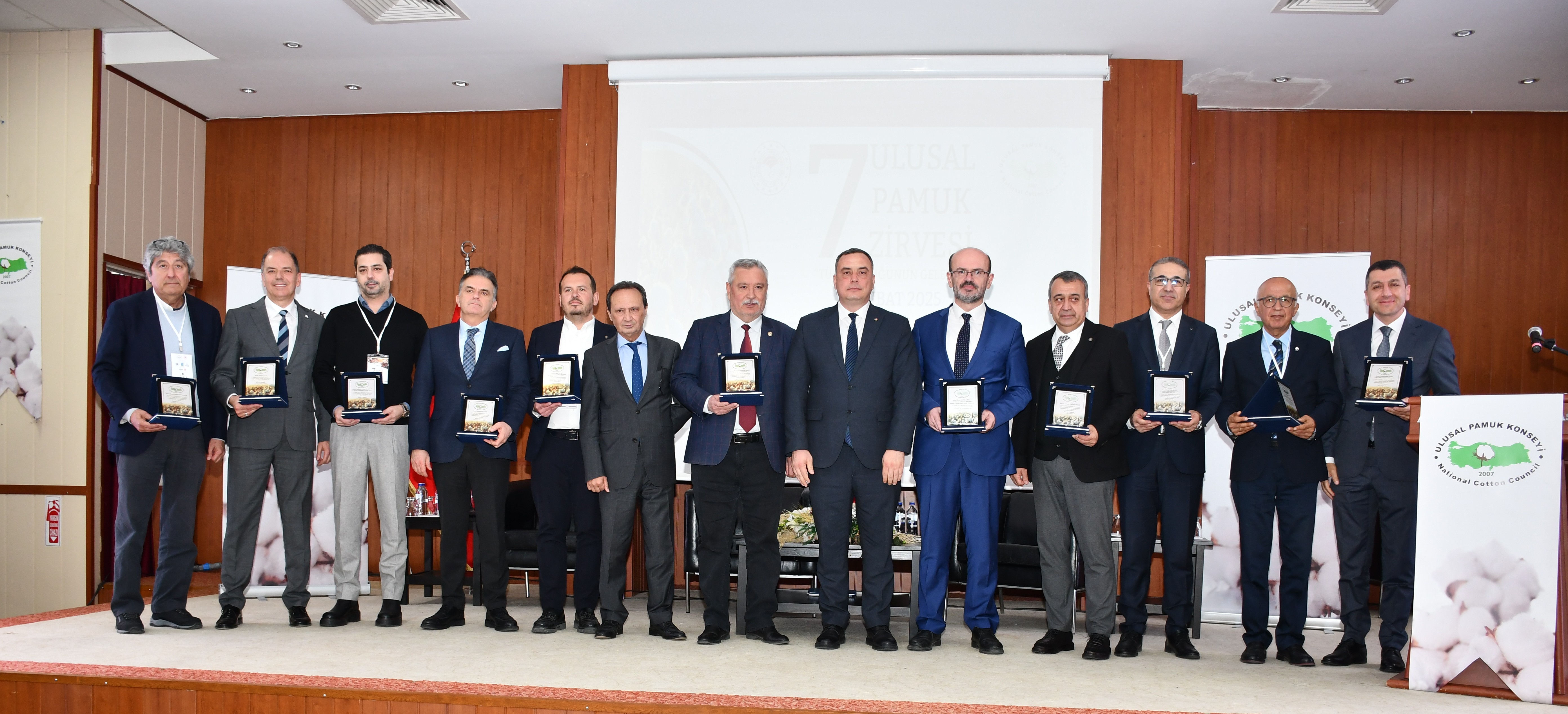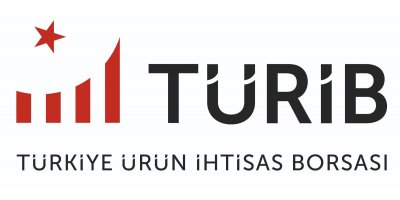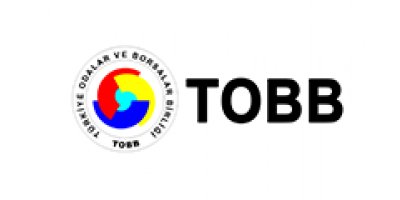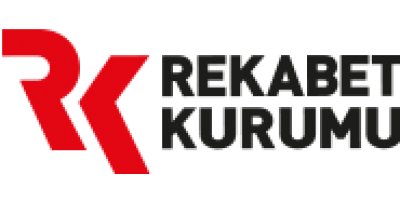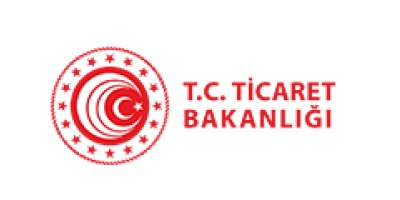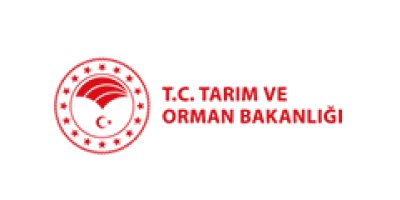01 April 2025 Tuesday
22.02.2025 7th National Cotton Summit was Hosted by Aydın Commodity Exchange
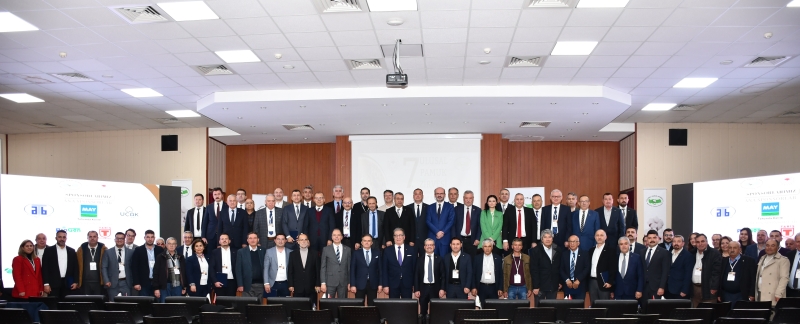
The 7th National Cotton Summit, organised by the National Cotton Council, was hosted by Aydın Commodity Exchange with the theme of ‘The Future of Turkish Cotton’. Aydın Deputy Governor Mehmet Yüce, Ministry of Agriculture and Forestry Deputy General Director of Crop Production İhsan Emiralioğlu, Aydın Deputy Ömer Karakaş, provincial protocol, chamber and stock exchange presidents, institution managers, heads of exporters' associations, representatives of chambers of agriculture, cotton producers and textile sector representatives attended the summit.
Delivering the opening speech of the summit, Aydın Commodity Exchange and National Cotton Council Chairman Fevzi Çondur emphasised that cotton is not only an agricultural product for Turkey, but also a strategic raw material for the textile industry. Stating that Turkey is among the important countries in terms of cotton production and consumption in the world, Çondur drew attention to the fact that the cotton sector constitutes a large value chain. He stated that factors such as fluctuations in cotton production in recent years, increase in input costs, global competition conditions and climate change are among the main challenges for producers.
Çondur said, ‘Cotton cultivation areas decreased to 359 thousand hectares, the lowest level of the last forty years, due to insufficient support in the 2020/21 season. In the following 2021/22 season, the cultivation areas increased to 432 thousand hectares, and in the 2022/23 season, thanks to the improvements in support, the cultivation areas reached 573 thousand hectares. Thanks to the skilful adaptation of our producers to arid and hot climatic conditions, field yields were maintained and our country's cotton production reached record levels of 2 million 750 thousand tons of bulk cotton and 1 million tons of fibre cotton in 2022. However, due to high inflation on a global and national scale, production costs have increased significantly, while product prices have not increased in parallel with this increase.’
Stating that consumers' interest in environmentally friendly production and natural products has increased and this trend has been further reinforced by the global pandemic, Çondur emphasised the importance of increasing traceability in cotton production and expanding organic cotton and good cotton practices. He also stated that strategies that will increase the global competitiveness of the textile and ready-to-wear industries by reducing their dependence on foreign raw materials should be implemented. Stating that the ‘GMO Free Turkish Cotton’ brand is a great prestige element for Turkey, he said that domestic cotton production should be equalised with good agricultural practices by making the necessary arrangements in legislation and practices.
İhsan Emiralioğlu, Deputy Director General of Crop Production at the Ministry of Agriculture and Forestry, stated that cotton production is concentrated in countries with certain climatic and ecological conditions worldwide. ‘80% of the world cotton production is carried out by 7 countries, including Turkey, and cotton is produced in nearly 100 countries and provides income to millions of people. While global fibre production was 116 million tonnes in 2022, this figure reached 124 million tonnes in 2023, 20% of which was cotton. From the production level of 58 million tonnes in 2000, global fibre production has more than doubled and is expected to reach 160 million tonnes in 2030. In 2023, approximately 74 million tonnes of cotton stumpage was produced on 32.2 million hectares of land in the world. Turkey, on the other hand, has produced 2.2 million tonnes of cotton in the last 5 years on an average area of 4.6 million decares and 820 thousand tonnes of fibre cotton has been produced in return. Although Turkey ranks 7th in the world in cotton production, it ranks 3rd in cotton yield with a production twice the world average. In addition, Turkey is one of the largest countries producing non-genetically modified (non-GMO) cotton in the world.’
Sharing the data for the year 2024, Emiralioğlu stated that a total of 2.24 million tonnes of blunt cotton was produced in our country, 322 thousand tonnes of cotton exports generated an income of 558 million dollars, and in the same period, approximately 819 thousand tonnes of cotton imports were worth 1.56 billion dollars. Emphasising that textile and ready-to-wear exports reached 30.8 billion dollars in the same period, Emiralioğlu stated that these figures reveal the strategic importance of the cotton sector in the national economy. Emiralioğlu stated that due to its strategic importance for our country, 13 products and 1 product group (Fodder Crops), including cotton, were included in the scope of crop production planning and gave information on agricultural supports.
Following the opening speeches, the 1st session of the summit on ‘Planned Production Model, Supports and Problems in Production’ was held. The session was moderated by Barış Kocagöz with the participation of Mehmet Kendirlioğlu, President of Efeler Chamber of Agriculture, Prof. Dr. Cafer Mart, General Coordinator of Progen Seed A.Ş., İsmail Hulusi Özbaşatak, Producer and İhsan Emiralioğlu, Deputy General Director of Crop Production of the Ministry of Agriculture and Forestry. In the session, planning in agricultural production, support policies and problems encountered in the sector were discussed.
The 2nd session of the summit on ‘The Place and Importance of Turkish Cotton in the Textile Sector’ was moderated by Bülent Uçak, Board Member of the National Cotton Council. Ahmet Fikret Kileci, President of Southeastern Anatolia Textile and Raw Materials Exporters‘ Association, Abdurrahim Yada, Commercial Director of Çalık Cotton A.Ş., Muzaffer Turgut Kayhan, President of Good Cotton Practices Association and Onur Uçak, Board Member of Aegean Textile and Raw Materials Exporters’ Association participated in the session. In the session, issues such as the strategic importance of Turkish cotton in the textile sector, its place in the global market, sustainable cotton production and quality standards were discussed. In addition, evaluations were made on supporting domestic cotton production, increasing international competitiveness and the challenges faced in the sector.
The summit ended with the presentation of plaques to the guests who sponsored the programme and participated as speakers.







